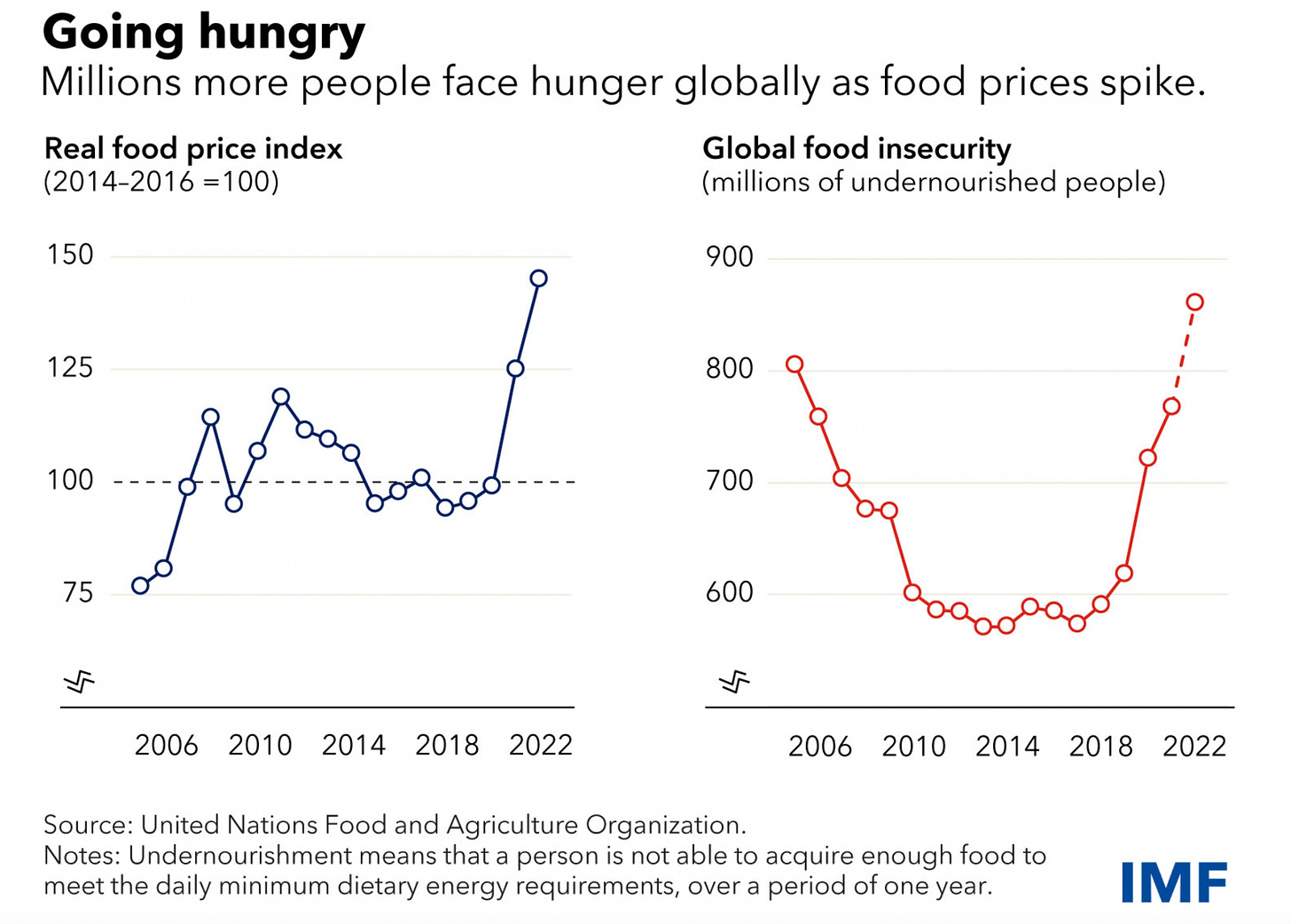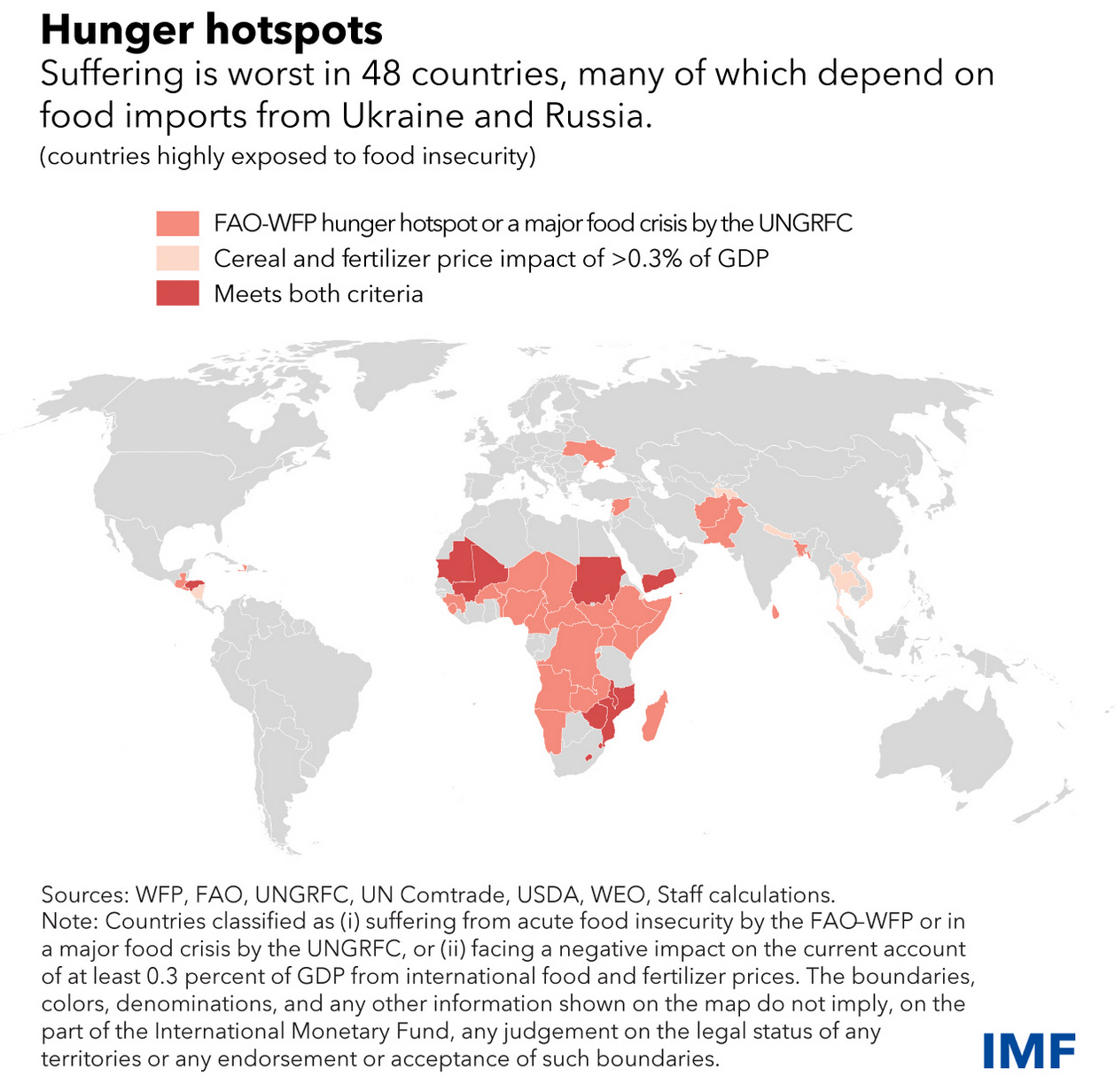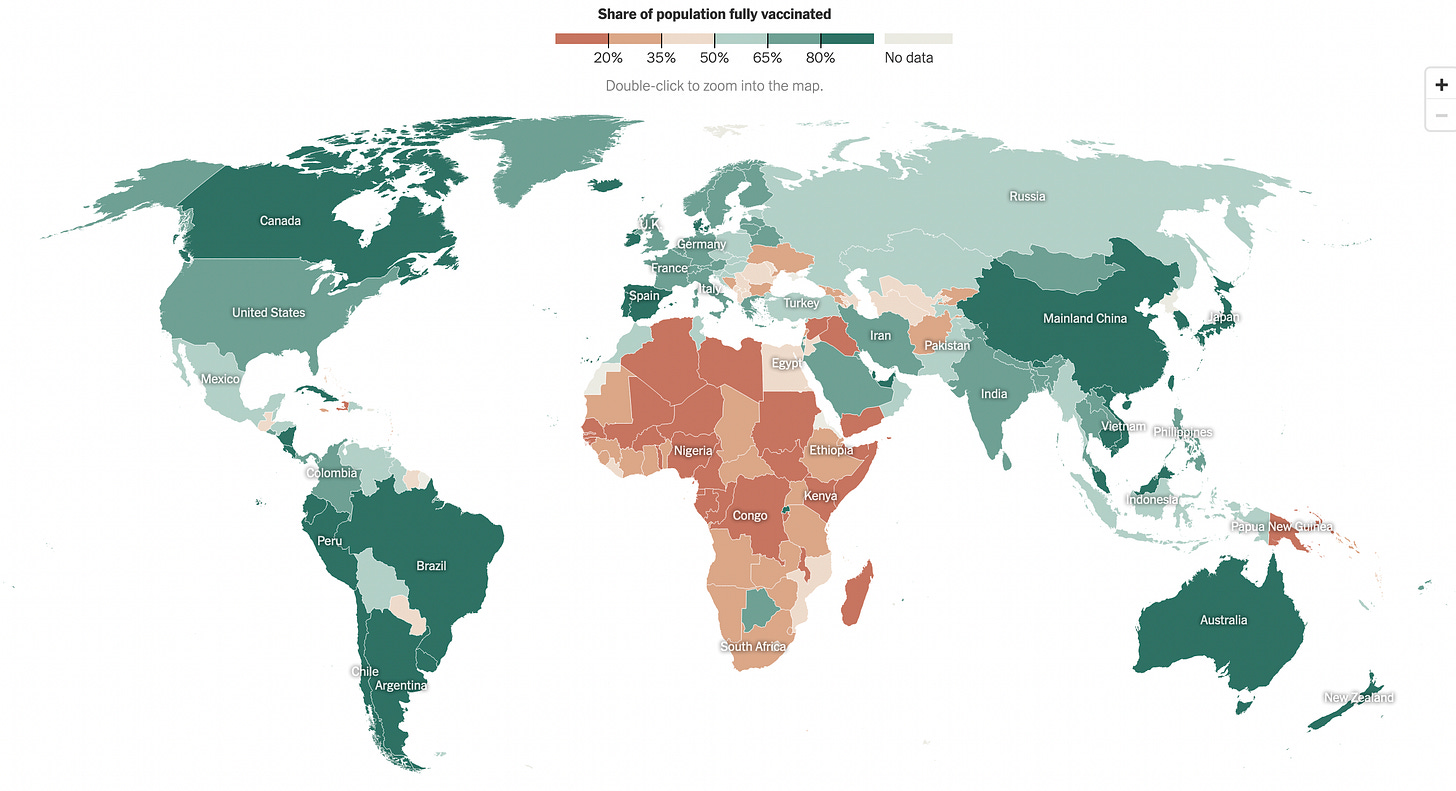After failing to provide poorer nations with vaccines against Covid, rich nations are now scrambling to save them from a wave of starvation.
(Originally published Oct. 4 in “What in the World“) Ahead of the biannual IMF-World Bank meetings next week in Washington, D.C., the International Monetary Fund is lining up emergency funds to help nations cope with an unfolding global food crisis that has put the survival of 345 million people in immediate danger.
While the crisis has been unfolding since 2018, the IMF says, the war in Ukraine has intensified it, especially in countries that depend on the two warring nations for food.

Rising prices for food and fertilizer will likely boost the import bill of the 48 countries most vulnerable to the war in Ukraine an additional $9 billion this year and next. The IMF is lining up emergency financing to help them meet those costs and pay the $5 billion to $7 billion it estimates is needed to protect the most vulnerable. Funding for a new food shock emerging financing window will come, the IMF said, from donor grants and loans from multilateral development banks.
The IMF’s move follows actions by other multilateral organizations bracing for a food catastrophe. Last month, the Asian Development Bank said it had earmarked at least $14 billion in concessionary loans over the next three years to support farming and food supplies. The World Bank said back in May that it would provide as much as $30 billion in funding to new and existing projects aimed at coping with the food crisis, from supporting farming and water conservation to improving nutrition and promoting trade.
The new initiative doesn’t appear to have garnered much attention in the mainstream media, beyond mentions by Reuters and The Wall Street Journal. That could have something to do with where the food crisis is most intense….

You may recognize this map: It’s remarkably like the map of countries that haven’t been able to get Covid vaccines despite Western pledges to make them available.
